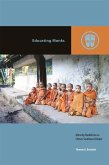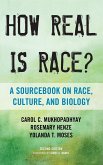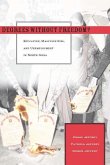Education is arguably the central arena where the discipline of anthropology is reproduced, challenged, and renewed. This volume examines how anthropology is taught and transformed in diverse institutional and socio-political contexts worldwide. Covering themes such as multimodal teaching, research-led learning, and disciplinary boundaries, the book offers new insights into the changing role of teaching within anthropology. This book compiles ethnographically grounded case studies to explore how educators respond to technological advancements, neoliberal influences, and calls for decolonising pedagogy. By highlighting content-specific strategies and comparative reflection, this study views anthropological education as a vibrant and critical space where anthropology is reimagined and revitalised.
Bitte wählen Sie Ihr Anliegen aus.
Rechnungen
Retourenschein anfordern
Bestellstatus
Storno








